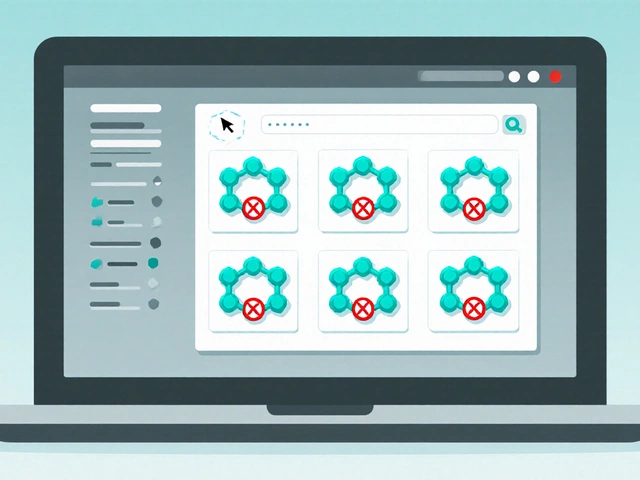Ever thought about dipping your toes into the manufacturing world? It's not as daunting as it might seem. With the right mindset and a dash of creativity, you can start a manufacturing business without breaking the bank. Imagine crafting your own line of natural soaps or designing chic ceramic vases—these simple ideas can actually turn into a profitable venture.
Manufacturing has a unique appeal: you get to create something tangible from scratch. Plus, small-scale manufacturing can often be started right from home, meaning you save on overhead costs. The trick lies in picking an idea that’s both manageable and has market demand.
Take candle making, for instance. It's a classic manufacturing idea that doesn’t require a massive investment and allows for plenty of creative freedom. With basic equipment and some essential oils, you can produce beautifully scented candles right in your kitchen. Who wouldn’t love a side hustle that makes everything smell amazing?
- Why Manufacturing Is a Great Choice
- Top Easy Manufacturing Ideas
- Low-Cost Startup Options
- Essential Tips for Beginners
- Success Stories in Manufacturing
- Common Mistakes and How to Avoid Them
Why Manufacturing Is a Great Choice
Diving into manufacturing makes sense for a lot of reasons. First off, you're tapping into a sector that's the backbone of any economy. By creating physical products, you're meeting a real need and not just providing a service. That's why there's always going to be demand.
One cool thing about manufacturing is the control you have. From deciding on what to make, to how to make it, you're steering the ship. Plus, having something tangible to show for your efforts feels very rewarding. It's not just about the money; it's about seeing your ideas take shape.
Job Creation and Economy Boost
Manufacturing is a big job creator. Every new manufacturing business contributes to employment and boosts the local economy. According to the International Trade Administration, small manufacturers in the U.S. account for 98% of manufacturing companies and provide a huge portion of the jobs in this sector.
"Manufacturing isn't just about building things. It's about building people, building families, and building communities." — National Association of Manufacturers
When you start a small-scale manufacturing business, you're not just creating products; you're creating opportunities for people around you.
Flexibility and Innovation
This is where it gets exciting. You have endless room to innovate. Whether it's improving efficiency, introducing sustainable practices, or hopping on the latest trends, the sky's the limit. There’s also flexibility in scaling your business. Start small and expand as your demand grows—no need to jump in too deep right away.
If you ever thought manufacturing was all assembly lines and hard hats, think again. Many manufacturing ideas, like handmade crafts or natural skincare products, can be done in small workshops or even from home. This approach keeps overheads low and creativity high.
Manufacturing has evolved. It's as much about problem-solving and tech innovation as it is about hands-on production. Starting in this field, especially with a lean business model, could be your path to something impactful. And let's face it, who doesn't like the idea of creating things and making a mark on the world?
Top Easy Manufacturing Ideas
So you're looking to start a manufacturing business but want something simple and manageable? No worries! Here are some easy business ideas that can be started on a small scale. They're not only affordable but also allow you to tap into popular markets.
Candle Making
Candles are always in demand, whether for special occasions or regular home use. You can start with basic tools like wax, wicks, and molds, which are easily available and inexpensive. Plus, you can jazz them up with unique scents and designs to capture niche markets.
Handmade Soap Production
With the growing trend towards organic and natural products, handmade soaps are a hot commodity. Similar to candle making, starting out doesn't require major investments. You can experiment with different natural ingredients and scents to create a line of organic skincare products.
Craft Beer Brewing
Love beer? Why not make it yourself? The craft beer scene is booming and offers a fun way to dive into manufacturing. However, be sure to check local regulations and start small with home brewing kits before investing in larger equipment.
Small-scale Textile Production
This involves making products like tote bags, pillow covers, or aprons. With a simple sewing machine and some fabric, you can create stylish home goods that sell well online or at local markets.
Custom Jewelry Making
Jewelry never goes out of style, and custom pieces are especially cherished. Using beads, stones, and wires, you can create unique items. Leveraging platforms like Etsy can help reach a wider audience.
| Idea | Initial Costs | Potential Profit |
|---|---|---|
| Candle Making | $200 | 3x of Cost |
| Handmade Soap | $150 | 4x of Cost |
| Craft Beer | $300 | 2x of Cost |
| Textile Production | $100 | 3x of Cost |
| Jewelry Making | $100 | 5x of Cost |
Diving into these ventures can be both rewarding and fulfilling. Remember, with passion and a good marketing strategy, your small-scale manufacturing business can make waves, even in a competitive market.
Low-Cost Startup Options
Venturing into the *manufacturing* arena doesn't mean you have to empty your wallet. There are plenty of low-cost startup options that allow you to test the waters without a massive financial commitment. Here’s a glimpse at some accessible and affordable ideas.
Handmade Soap Production
One of the simplest and most rewarding *manufacturing ideas* is soap making. It's literally a hands-on endeavor where you can let your creativity shine with different scents, colors, and ingredients. The initial equipment needed includes molds, a mixing container, and essential oils. With a basic setup, you could start your own line of natural soaps right from your kitchen.
Candle Making
Candle making is not just relaxing; it's a business with a steady market demand. The ingredients and materials, such as wax, wicks, and fragrance oils are inexpensive and readily available. Starting small-scale and experimenting with scents or unique candle vessels could set your products apart in the market.
Custom T-shirt Printing
If you have a knack for design, custom T-shirt printing might be your calling. All you need is a heat press machine and blank tees. This business allows you to cater to niche markets or local communities with tailored designs that speak to their interests or events.
Jewelry Making
Jewelry is a great choice for a low-cost manufacturing start-up. From beaded designs to metalwork, the possibilities are endless. You can source materials like beads, wires, and clasps in small quantities to start. Plus, platforms like Etsy provide a global marketplace for handmade creations.
The Cost Breakdown
Here's a rough idea of the potential costs you might see with a few of these options:
| Business Idea | Initial Cost (USD) |
|---|---|
| Soap Making | $150-$300 |
| Candle Making | $100-$200 |
| T-shirt Printing | $300-$500 |
| Jewelry Making | $100-$250 |
Remember, starting small lets you keep risks low while you build your brand's identity. As you grow, reinvesting profits into more tools or diversification is the way to scale up gradually. So, whether you’re making *candles*, T-shirts, or pretty accessories, the manufacturing path can be both affordable and rewarding.

Essential Tips for Beginners
Diving into the world of manufacturing might feel overwhelming, but sticking to a few basic principles can smooth the way. First things first, it’s crucial to do your homework. Understand the market and what your competitors are up to. Why? Because knowledge is power, and knowing what’s already out there helps you carve a niche for yourself.
Start Small
No need to go big from the start. Test the waters by beginning on a small scale, which lets you manage risks better. Consider producing initial batches in smaller quantities and get feedback from friends or local markets. This approach not only saves money but also allows you to tweak your products based on real-world feedback.
Focus on Quality over Quantity
In the small-scale manufacturing game, quality trumps quantity every time. Customers are more likely to return and spread the word if you provide a product that truly stands out. Maintaining high standards also helps build your brand’s reputation from the get-go.
Master the Basics of Cost Management
- Keep a close eye on your expenses; knowing where every penny goes can save you from financial hiccups down the line.
- Negotiate with suppliers for better rates; buying in bulk might offer you discounts, but balance it with your storage capacity.
- Automate where possible to save on labor costs—simple tech solutions can often replace manual tasks.
Network and Learn
Form connections with other entrepreneurs in the manufacturing space. Attend local business meetups or online forums. Networking not only opens doors to new opportunities but also provides a support system when you hit inevitable roadblocks.
Stay Resilient
The journey won’t be without its challenges, but resilience is key. There might be days when things don’t go as planned, and that’s okay. Learn from setbacks and keep pushing forward. Success in easy business endeavors often comes from those who don’t give up.
Success Stories in Manufacturing
Every great business has a story, and many of today’s big names started small. Let’s look at a few inspiring tales that show how easy manufacturing can grow into something big.
Harland Sanders and KFC
It’s hard to believe, but Colonel Harland Sanders started KFC with a simple recipe for fried chicken. In the early 1950s, Sanders was just a man with a secret blend of 11 herbs and spices, cooking up chicken in his garage. He began by selling his ready-made blend and cooking know-how to restaurants. This small beginning turned into a massive global brand.
Patagonia's Rise
More than just an outdoor clothing brand, Patagonia's manufacturing story started with Yvon Chouinard, a rock climber making his own climbing gear. His passion grew into a full-fledged business when he realized others wanted his easy-to-use, well-made products. Today, Patagonia is a leader in eco-friendly manufacturing and sustainable business practices.
Warby Parker's Spectacular Idea
Built on the idea of making glasses affordable and accessible, Warby Parker began with a college project. The founders started designing frames and collaborating with manufacturers to create stylish eyeglasses at a fraction of traditional prices. Their direct-to-consumer model skyrocketed them into a brand everyone knows.
Here’s a cool fact: Warby Parker was named one of the most innovative companies by Fast Company, demonstrating how a simple idea with smart manufacturing can lead to massive success.
Burt's Bees from Beeswax to Beauty
A charismatic beekeeper and an artist began with candles made from leftover beeswax. Burt’s Bees quickly grew from a small craft business to a major producer of natural skincare products trusted worldwide. The founders didn't require a lot—just a creative spark and determination to grow the brand.
Manufacturing ideas that are simple yet scalable can turn into big-time success stories. Whether you're producing something as simple as handmade soap or as complex as eyewear, the right idea can soar with a bit of innovation and drive.
Common Mistakes and How to Avoid Them
Taking the plunge into the manufacturing world can be quite the adventure, but it also comes with its fair share of pitfalls. Here’s a closer look at some common blunders often made by newcomers, and how to sidestep them.
Let's Talk Planning—And Why It's Essential
One of the biggest mistakes? Not having a proper business plan. Jumping into a manufacturing business without a solid roadmap is like sailing without a compass. Make sure to map out your objectives, understand your market, and have a financial plan in place.
Overlooking Market Research
Many budding entrepreneurs skip the crucial step of market research. It's essential to know if there's a demand for your product before diving headfirst into production. Use online tools or even simple surveys to gather valuable insights about your target audience.
Underestimating Costs
Another rookie error is underestimating the costs involved. While it's possible to start with a low-cost startup, unexpected expenses can pop up. Consider costs like shipping, materials, and marketing in your budget.
| Expense | Estimated Cost |
|---|---|
| Materials | $500 - $2,000 |
| Shipping | $100 - $500 |
| Marketing | $300 - $1,000 |
Neglecting Quality Control
When it comes to manufacturing, quality is king. Producing a large batch of subpar products can damage your brand before you even get started. Implement quality checks from day one to ensure consistency and reliability in your products.
Forgetting to Pivot
Lastly, don't get stuck in your ways. The market and consumer preferences change rapidly, and so should you. Stay open to feedback and be willing to pivot your strategy if something isn't working.
Steering clear of these missteps can set you on the path to a thriving manufacturing venture. With the right plan, research, and a touch of adaptability, you’re well on your way to success.











Write a comment